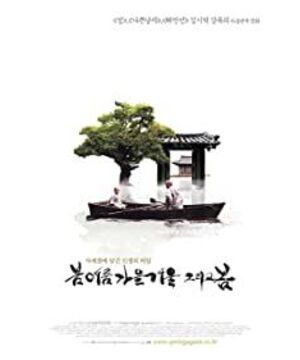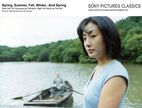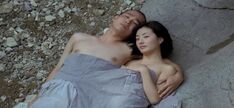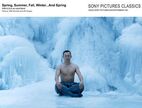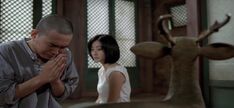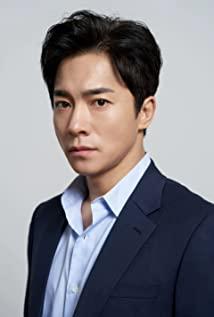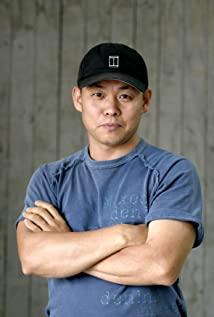Spring begins. The little monk's cruelty to small animals is not to show the evil of human nature, because he has no view of good and evil at all, and everything arises from his own xinxing. Is human nature inherently good or inherently evil? I have always firmly believed that human nature is nothing, and that human nature is ethereal at first, and it can be shaped infinitely by the environment. In layman's terms, human beings are social. The little monk's cruelty to small animals is neither good nor evil, it's just fate. When fate gathers, things happen naturally. As for the old monk educating the young monk, just to tell him that "all beings are equal." Xia, restless. The story between the little monk and the girl, I have to say, just because of fate, things happened naturally. The old monk never denied their behavior, but only warned the young monk that all kinds of desires followed after lust, including possessiveness (desire for things). Desire itself has no good or evil, but desire materializes the surroundings. Zen talks about the emptiness of all dharmas, which do not arise or die. In layman's terms, what it has to do is to cultivate to the origin of human beings, return to the most ethereal state, strip away the material real self, and leave the spiritual empty self. In the end, the young monk moved away the Buddha statue. In fact, the spiritual me was separated from the young monk, leaving behind the materialistic me. Autumn, silence. Personally, I really like autumn in the film, a quiet season returning from mania. The young monk restored the Buddha statue, which also symbolized the beginning of his regaining the spirit of me. After he had done his best to engrave the "Heart Sutra", his character calmed down. In the end, the mountain does not turn to the temple, and the agility of the temple to turn to the mountain is very, very beautiful. This realm belongs to the old monk. The only concern for these old monks is the young monk, and at this time this period of fate is exhausted. All the sights are moved by the heart. The old monk has truly entered the realm of my spirit. End of fate, pass away. Winter, new life. There are various signs that this monk is a young monk who once murdered his wife and went to jail. Why does it look different? All dharmas are empty, and the material self is not important. It can be monk A, it can be monk B, it can be a frog, or it can be a Buddha statue. As long as the spiritual self exists. And the spiritual I can be anywhere between heaven and earth, looking at the Buddha statue of the lake in the temple from the top of the mountain is me. In fact, the few girls in the film are also a representation of material desire. For the monk, whether it is a scene or a human being, it is a material appearance, and it doesn't matter. At this time, the face of the masked woman, after stripping off the material appearance, reveals the spiritual face of my Buddha. All this is from the perspective of a monk. Finally, the monk completed the sublimation process of stripping away the material self and leaving the spiritual self. Another spring. For the little monk is another new journey, reincarnation. For middle-aged monks, the so-called four seasons are nothing more than the state of mind. Finally, the "Heart Sutra" is attached to the Bodhisattva of Vipassana, who walks deep prajna paramita for a long time, sees the five aggregates in emptiness, and saves all sufferings. Relics, Form is not different from emptiness, and emptiness is not different from color. Form is emptiness, and emptiness is form. Feeling, thinking, behavior, and consciousness are the same. The relics are the void aspects of all dharmas, which do not arise or die, are not dirty or clean, and do not increase or decrease. For this reason, there is no color in the air, no feeling, thought, action, knowledge, no eyes, ears, nose, tongue, body, mind; noness, form, sound, fragrance, taste, touch, and dharma; no vision, or even unconsciousness. There is no ignorance, no ignorance, and even no old age, no old death; no suffering, gathering, extinction, way, no wisdom and no gain. For no reason, Bodhi Sattva, relying on Prajna Paramita for many reasons, has no troubles in mind, no troubles, no terror, far away from inverted dreams, and ultimate nirvana. The Buddhas of the three generations, relying on Prajna Paramita for many reasons, obtained the Three Bodhi of Agudala. Therefore, knowing Prajna Paramita is a great mantra, a great mantra, a supreme mantra, a non-eternal mantra, which can eliminate all suffering and is true. Therefore, the Prajna Paramita mantra means the mantra: Revealing the Truth, Revealing the Truth, Polo Revealing the Truth, Parajang Sang, Revealing the Truth, and Bodhisattva Brahma.
View more about Spring, Summer, Fall, Winter... and Spring reviews


